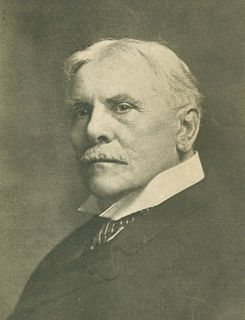A Quote by Carl Jung
There was need of a phantastic, indestructible optimism, and one far removed from all sense of reality, in order, for example, to discover in the shameful death of Christ really the highest salvation and the redemption of the world.
Related Quotes
If man had his way, the plan of redemption would be an endless and bloody conflict. In reality, salvation was bought not by Jesus fist, but by His nail-pierced hands; not by muscle but by love; not by vengeance but by forgiveness; not by force but by sacrifice. Jesus Christ our Lord surrendered in order that He might win; He destroyed His enemies by dying for them and conquered death by allowing death to conquer Him.
Another hallmark of Christianity is that salvation is not individualistic-it's not something one person receives for himself or herself. Salvation is the reign of God. It is a political alternative to the way the world is constituted. That's a very important part of the story that has been lost to accounts of salvation that are centered in the individual. But without an understanding that salvation is the reign of God, the need for the church to mediate salvation makes no sense at all.
Salvation is accomplished by the almighty power of the Triune God. The Father chose a people, the Son died for them, the Holy Spirit makes Christ's death effective by bringing the elect to faith and repentance, thereby causing them to willingly obey the gospel. The entire process (election, redemption, regeneration) is the work of God and is by grace alone. Thus God, not man, determines who will be the recipients of the gift of salvation.
My personal life may be crowded with small petty incidents, altogether unnoticeable and mean; but if I obey Jesus Christ in the haphazard circumstances, they become pinholes through which I see the face of God, and when I stand face to face with God I will discover that through my obedience thousands were blessed. When once God's Redemption comes to the point of obedience in a human soul, it always creates. If I obey Jesus Christ, the Redemption of God will rush through me to other lives, because behind the deed of obedience is the Reality of Almighty God.
Of the seven billion people who reside on planet Earth, only 25% could, in the broadest sense of the word, be classified as "Christian" (and the percentage who have personally trusted in Christ for salvation is much smaller), meaning that over five billion people in the world are destined to hell if indeed Christ offers the exclusive path for salvation. To many people, such a claim is offensive.
Those people who say that America is finite are some sense right. The environmental movement, for example, has a great wisdom to it: we need to protect, to preserve, to shelter as much as we need to develop. But I think this always has to be juxtaposed against the optimism of old, which is now represented in part by immigrants. I would like to see America achieve a kind of balance between optimism and tragedy, between possibility and skepticism.
To be "in Christ" is to place one's trust in Him for salvation from sin. To be "in Christ" is to trust His goodness, not our own; to trust that His sacrificial death on the cross paid the complete debt of death we owe for our sin; to trust that His resurrection gives us eternal life instead of relying upon our own ability to please God. To be "in Christ" is to claim, by faith, the free gift of salvation. To be "in Christ" is to enjoy a completely restored relationship with our Father in heaven by virtue of His Son's righteous standing.
Reality (i.e., the truth) is that there is a God in heaven. Reality is that He made us and we are accountable to Him. Reality is that this God has spoken and what He says matters--eternally. Reality is that without His salvation, we are doomed to eternal torment. Reality is that God's Son, Jesus Christ, has died for the sins of the world, that He has risen again, and that whoever believes on Him is given eternal life.
Christ's miracles were not the suspension of the natural order but the restoration of the natural order. They were a reminder of what once was prior to the fall and a preview of what will eventually be a universal reality once again--a world of peace and justice,
without death, disease, or conflict.




































